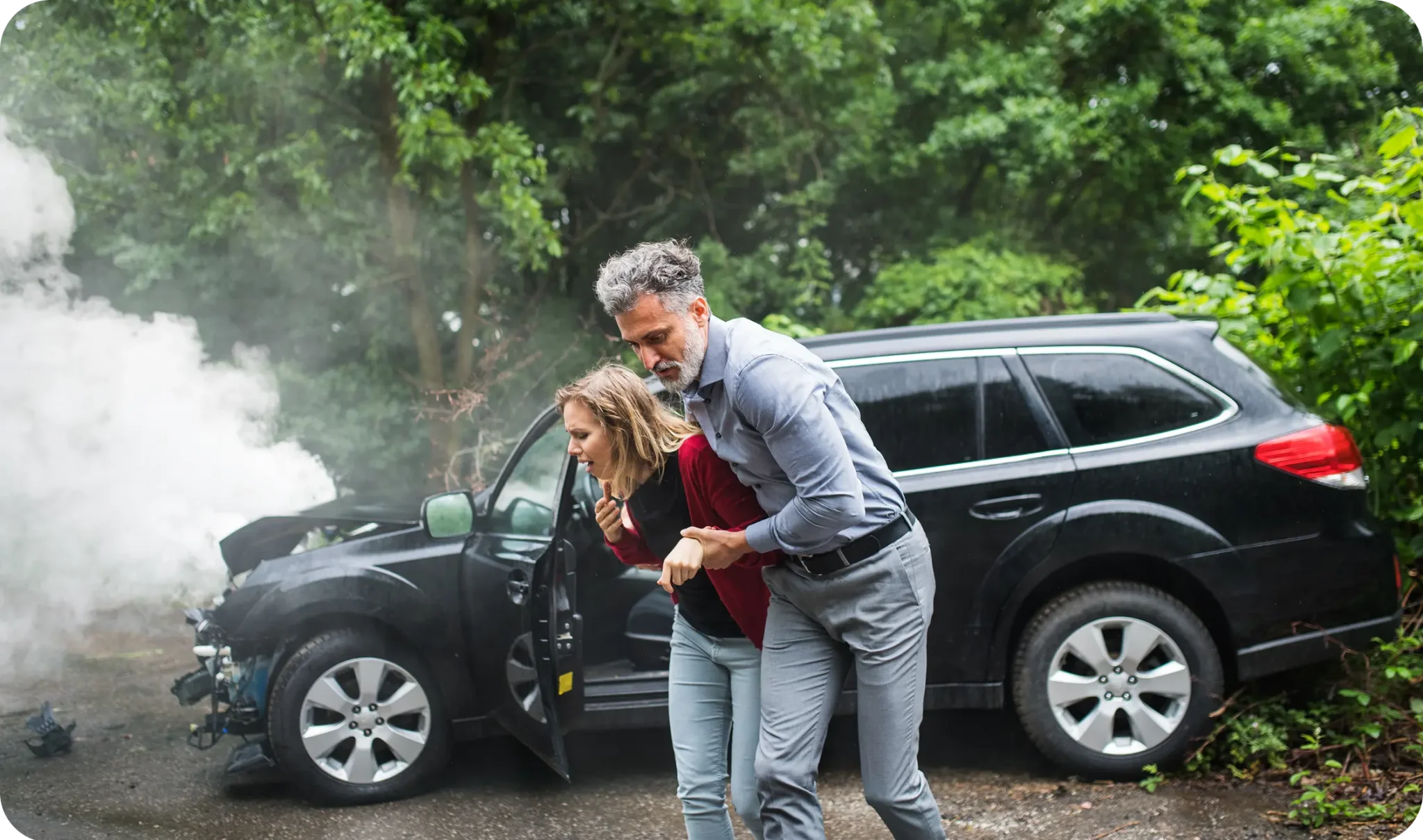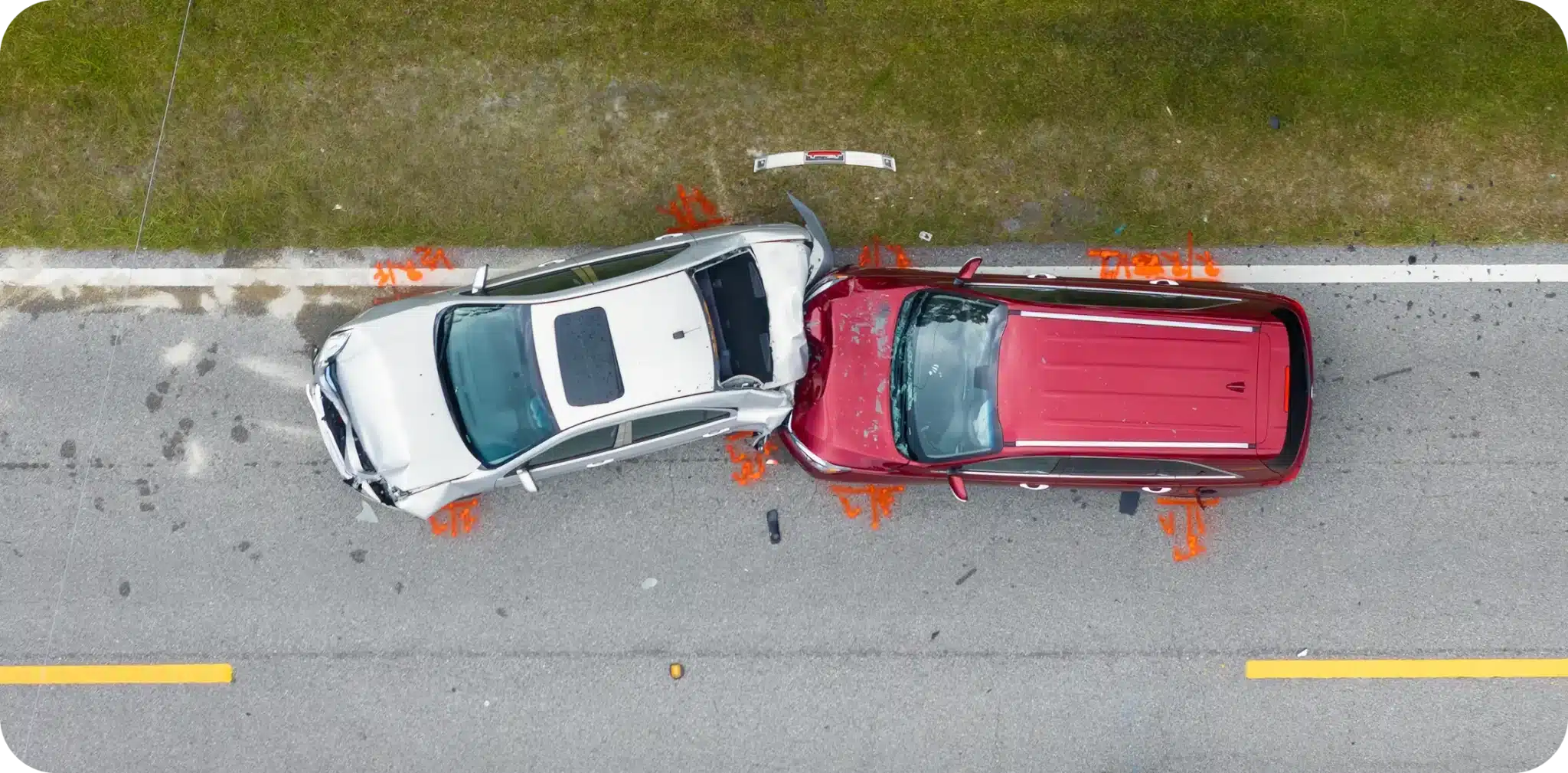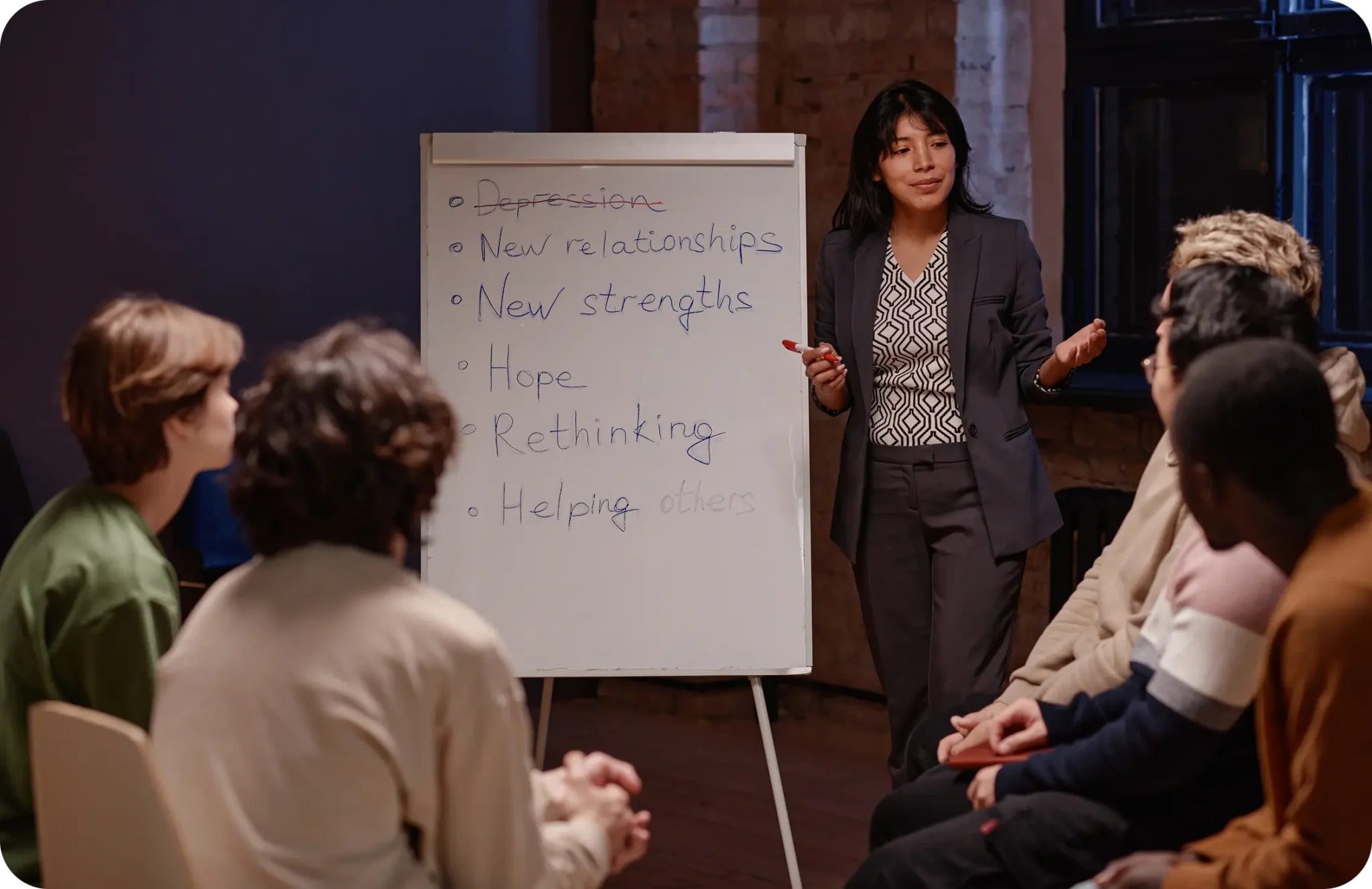Navigating Emotional Recovery After a Car Accident
Car accidents are severe emotional triggers. Whether or not you suffer a physical injury, it’s normal to struggle with intense and persistent feelings like anxiety, anger, guilt, sadness, or depression. Or you may feel emotionally numb and detached. You might be reluctant to get into a car, even as a passenger.

Payer Law
Personal Injury Lawyers
Car accidents are severe emotional triggers. Whether or not you suffer a physical injury, it’s normal to struggle with intense and persistent feelings like anxiety, anger, guilt, sadness, or depression. Or you may feel emotionally numb and detached. You might be reluctant to get into a car, even as a passenger.
Emotional trauma after an accident is real and can affect your ability to function. It’s essential to prioritize your emotional recovery after an accident, just as you’d prioritize healing from bodily injury. At Payer Law Personal Injury Lawyers, we understand the importance of your emotional wellness as an accident victim.
Understanding Emotional Responses After a Car Accident
A car accident shocks the emotional system, and people react differently. The first step to healing is recognizing your feelings and accepting them as normal.

Immediate Reactions
Immediately after a car accident, you might experience a sense of shock or disbelief. You left expecting a safe arrival and ended up in an accident. Your brain doesn’t fully understand what happened or why, and that disconnect can manifest as feeling stunned, confused, or unsettled.
Some people describe being in denial immediately after an accident. Their minds struggle to catch up and process the incident, so they can’t believe it happened. Their emotional mind tries to restore equilibrium by telling them it isn’t real. This state may persist for a while or cause intense feelings as they realize the accident did happen.
Short-Term Emotional Responses
As the reality of the situation settles in, you’ll probably start to feel upset. Emotional trauma from a car accident is entirely okay and understandable, and there’s no one “right” way to feel. Common reactions in the days and weeks after an accident include:
- Anxiety or fear: You might be nervous about driving, getting in a car, or crossing a busy street.
- Anger and irritability: For some people, the distress of a car crash manifests as anger. You might be on edge, and others may easily annoy you. Such feelings might be more likely if you believe someone else was at fault for your accident.
- Sadness or hopelessness: Many people feel sad or generally distressed after an accident, particularly if someone has died or suffered a serious injury. You may grieve the loss or injury even if you don't know the person. Feeling sad about damage to your vehicle or other property is also normal and understandable.
- Guilt or shame: You might feel guilty about "letting" the accident happen, even if you were not at fault. Feelings of responsibility may distract you and cause you to withdraw from others.
These aren’t the only emotions that arise after a car accident. It’s essential to be aware of what you’re going through and talk about it when you feel safe. Research shows that accident victims who talk about their experiences are less likely to experience long-term psychological effects.

Long-Term Psychological Effects
Car accidents can significantly affect long-term mental and emotional health. Ongoing effects may include:
Depression
Depression is a relatively common outcome of experiencing a car crash. Symptoms include feeling low, loss of pleasure in activity, reduced feelings of self-worth, and thoughts of harming oneself. A study in the Journal of Clinical Medicine found that 17.4 percent of car accident victims developed symptoms of depression. Severe injuries, hospitalization, medication usage, and feelings of responsibility for the accident may increase a person’s risk. If you have any symptoms of depression after your accident, a mental health professional can help.
Driving-Related Phobias
Many people feel nervous about driving or riding in a car after an accident, whether or not they were behind the wheel. A U.K. study found that 28.2 percent of car crash victims developed a travel phobia. Such a phobia can limit your daily activities and make it more challenging to enjoy life.
Immediate Reactions
In the same JCM study, nearly one-third of surveyed victims developed post-traumatic stress disorder, or PTSD, after their accidents. PTSD develops when fear and distress persist long after a traumatic event. Symptoms may include flashbacks, distressing memories or dreams about the accident, and a desire to avoid reminders of what happened. PTSD symptoms can develop months or years after an accident. If you experience long-term physical, social, or financial fallout from the accident or think about it often, you might be at higher risk.
Factors That Influence Emotional Recovery From a Car Accident
Everyone recovers from a car accident at different rates. Some feel “back to normal” after only a few days, while others take months or longer.
Severity of the Accident
Emotional recovery often takes longer in people who have experienced severe car accidents. Serious accidents are frightening events that can make people think how easily they could have died, suffered a serious injury, or lost a loved one. You may have even suffered an injury or loss of a loved one yourself.
Victims with severe injuries and extended physical recoveries are also more likely to struggle emotionally. Your injury may remind you of the accident and what you’ve lost or are trying to recover.

Personal Resilience and Coping Mechanisms
Resilience is a person’s ability to adapt to challenging circumstances and experiences, from everyday life stressors to life-threatening events such as car accidents. Resilience comes from your perspective on the world and the quality of the coping skills you’ve built.
Mental resilience helps people see their current situation more optimistically, allowing them to move forward and recover emotionally. It also helps to have active coping strategies in your emotional toolbox so you can face your recovery head-on as a challenge to overcome. Developing this skill can be challenging and take a long time.

Support Systems and Their Role in Recovery
Strong support networks are essential in emotional recovery. The more available your network is while you recover, the more successful healing efforts tend to be.
However, social support isn’t a passive phenomenon. It helps to have a caring network of family and friends who show up for you, but accepting their help is also essential. Studies have shown that those who avoid social contact recover more slowly emotionally and have a higher risk of PTSD.
What constitutes a strong social network can vary by person. If you believe you have the support you need and there are people in your life you can ask for help, you’re doing well.
If not, remember that you can build new connections and cultivate old ones. Reconnecting with friends and relatives can do wonders for your emotional well-being, provided those relationships feel healthy. Don’t be afraid to call someone you’d love to hear from or take a class to make new friends.

Strategies Individuals Can Utilize To Help With Emotional Healing
Emotional recovery is an active process. The more you do to help yourself, the better your chances of moving forward. Consider these three valuable strategies.
Seeking Professional Help
Part of what makes emotional recovery challenging is the complex network of feelings that can develop. A licensed therapist, mental health counselor, or psychologist can help you work through your thoughts and emotions and move forward.
Mental health professionals receive training in how to help people process traumatic events, including car wreck trauma. They have strategies to help you talk through things in a way that feels safe for you. They can work with you to identify your feelings and develop effective coping strategies.
They also have the professional background to recognize when you might be developing depression, PTSD, or an anxiety disorder. They can also refer you to the right professional if you need specialized care or medication.
Self-Help Techniques for Emotional Well-Being
Self-care is a key part of recovering from trauma after a car accident. When you feel agitated or down, consider how you might calm yourself and feel more centered. For example:
- Go for a walk in nature
- Get active by dancing, working out, or taking a run around the block
- Journal your thoughts
- Watch a funny movie
- Enjoy a caffeine-free hot beverage
- Spend time on a hobby
- Reach out to a friend
- Do a guided meditation
- Take a yoga class
Pay attention to what works in different situations. You might learn that it helps to get active when you’re anxious and distract yourself when you’re upset, or vice versa.
Many of these strategies also maintain your emotional well-being, building a solid foundation to move forward.
Support Groups and Community Resources
Learning how to deal with car accident trauma can feel lonely and isolating. Friends and family help, but they may not have experienced what you’ve gone through. Fortunately, there are people out there who do.
Ask your therapist or contact your community health center to learn about accident victim support groups in your area. There are also numerous online support groups, including Facebook groups and Reddit communities.
These communities share support and resources for recovering from car accidents. It’s important to research any recommendations you receive from strangers, as spammers and scammers often gain access to such groups.
Practical Steps To Rebuild Confidence After a Car Accident
It’s understandable to feel nervous about driving after a car accident, whether or not you were behind the wheel. The important thing is to find a balance between self-compassion and helping yourself feel more confident. Anxiety is normal, but the goal is to regain control of your life.

Gradual Exposure to Driving Again
Many people feel ready to be passengers before they’re prepared to drive. Find a friend whose driving you trust and let them take you for a few short rides.
As you start to heal emotionally, make a plan to reclaim the driver’s seat. DriveDifferent, a resource for professional drivers and fleet leaders, recommends starting in a quiet neighborhood or even a parking lot. If helpful, take someone along for support.
Notice if you feel anxious and accept the feeling. Remind yourself that it’s normal to feel that way, and it doesn’t mean you should stop driving. Stick to quiet roads until you’re ready for busier streets and highways.
Defensive Driving Courses
A defensive driving course can help you feel more in control, even if you consider yourself a skilled driver. These courses reinforce essential road safety skills such as:
- Noticing common road hazards, including erratic drivers
- Evading dangers safely while driving
- Responding to changing conditions, such as skids and road debris
- Maintaining emotional calm in challenging scenarios
- Other safe driving best practices, such as avoiding distractions and maintaining a safe distance
Many safe driving courses are available online, or you can contact a driving school in your area. Check the provider’s credentials to ensure a quality education.
Relaxation Techniques To Manage Stress While Driving
Even with the right skills, there may be times when you feel nervous behind the wheel. Staying calm will help you make better decisions and avoid danger. Keep your stress down by using the following strategies:
- Listening to calming music
- Taking a few deep breaths
- Repeating an intention, like "I will arrive safely."
- Practicing progressive muscle relaxation, tensing and relaxing from the toes up
- Driving mindfully, noticing your surroundings and how your body feels
It’s important not to judge yourself for your anxiety. Judging your feelings is counter-productive and can increase feelings of distress. Focus on noticing what’s going on and keeping breathing.
Recognizing When To Seek Professional Help
Many people need help recovering emotionally after a car accident. Seeing a professional is nothing to be ashamed of. It’s a sign of strength. Asking for help means you’re committed to healing and are self-aware enough to know you need support. The first step is knowing what to look for.

Signs That Emotional Distress Requires Intervention
Some strong emotions are unsafe to manage independently and require expert guidance. Consider seeking professional help if you experience:
- Loss of interest in activities you used to enjoy
- Persistent feelings of irritability or restlessness
- Changes to sleep or eating patterns
- Avoidance patterns that impact your daily life
- Ongoing symptoms of trauma, such as flashbacks or jumpiness
Know that you may not recognize when these things are happening. If a loved one asks you to seek help, take them seriously.
Impact on Daily Functioning
When your emotional distress affects your daily life, it’s time to seek help. Make an appointment with a professional if fear, anxiety, or depression are making it difficult to work, take care of yourself, or maintain your relationships.
Resources for Emotional Recovery
Emotional recovery is an active process. The more you do to help yourself, the better your chances of moving forward. Consider these three valuable strategies.
National and Local Support Organizations
In addition to support groups for car accident survivors, there are many national and local support groups for trauma survivors. Examples include the Trauma Survivors Network and the National Center for PTSD. There are also injury-specific groups, including virtual groups for those with traumatic brain injury.
Recommended Reading and Online Materials
Reading about recovery and how trauma works can help you on your journey. Consider these well-reviewed resources:
- The Body Keeps the Score: A book on trauma and the body by Bessel van der Kolk
- What Happened to You?: A book on trauma, healing, and resilience by Oprah Winfrey and Dr. Bruce Perry
- Trauma Survivors’ Resource Guide, an e-guide by Carolyn Spring
Finding Professional Help
One-on-one help is often the most valuable resource. Find a therapist, psychologist, or therapist through the American Psychological Association, Psychology Today, or your insurance company’s search tool.
Originally published by Payer Law Group. Read the original guide here.

